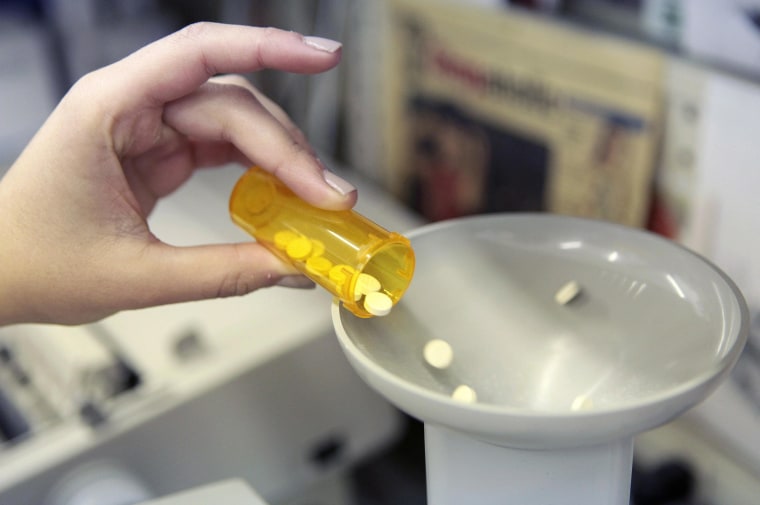There's no shortage of problems associated with Donald Trump effectively serving as an infomercial pitch-man for untested COVID-19 medicinal treatments. As we've discussed, such presidential advice generates unnecessary confusion; it causes a run on drugs that other patients actually need and rely on; and it can lead some to take dangerous risks through self-medicating.
And yet, as recently as the weekend, Trump took the extraordinary step of publicly encouraging Americans to take hydroxychloroquine, even if the scientific research doesn't support such a recommendation, at least not yet. Making matters worse, that's not the only guidance that's causing trouble.
Politico had a report two weeks ago, noting that some health officials are "being pulled away from other potential projects to address the president's hunch." It published a related report last night, pointing in an even more unsettling direction.
The nation's top infectious-disease expert, Anthony Fauci, has repeatedly warned in public and private that no definitive evidence exists about the drug. Behind the scenes, career health officials have raised even stronger warnings about the risk to some Americans' heart health and other complications, but been warned not to publicly speak out and potentially contradict Trump, said two officials.
That's not how this is supposed to work. It's a problem when health officials are told to tackle research they consider unworthy of their time; it's a bigger problem when health officials are told not to contradict the president's assumptions.
As for the overarching question -- why in the world is Trump pushing this untested treatment with unnerving vigor? -- there are a series of possible explanations in the mix.
Maybe it's corruption: The New York Times reported overnight, "If hydroxychloroquine becomes an accepted treatment, several pharmaceutical companies stand to profit, including shareholders and senior executives with connections to the president. Mr. Trump himself has a small personal financial interest in Sanofi, the French drugmaker that makes Plaquenil, the brand-name version of hydroxychloroquine."
Maybe it's desperation: Politico reported last night, "The rush to focus on unproven drugs also comes after months of lost opportunities to contain the spread of the outbreak. 'There'd be less focus on [hydroxychloroquine] now if we had planned better then,' said one official, who added that the drug is seen by some career scientists as a 'Hail Mary' effort to find a Covid-19 cure." The article quoted a Republican close to the White House saying the president "thinks that it's the drug that's going to get everyone back to work."
Maybe it's the undue influence of non-scientists: Rudy Giuliani, celebrity doctor "Dr. Oz," and Peter Navarro have all reportedly been touting hydroxychloroquine, and it's quite likely Trump finds them more credible than actual experts.
Maybe it's the undue influence of conservative media: Media Matters ran an interesting item yesterday noting that a variety of Fox News figures started floating quick fixes to the pandemic, including hydroxychloroquine, as early as March 12. A Washington Post report added today, "Fox host Laura Ingraham and two doctors who are regular on-air guests in what she dubs her 'medicine cabinet' visited the White House last Friday for a private meeting with Trump to talk up the drug."
Maybe it's an extension of Trump's anti-science, anti-expert posture: Philip Bump made the case yesterday that the president seems more likely to tout hydroxychloroquine because the relevant authorities are skeptical: "The answer is probably ... rooted in who Trump is and how he operates as president. Promoting a theory that runs against the recommendations of experts is a hallmark of Trump's approach to politics since even before his entry into the 2016 presidential race."
Whatever the reasoning, Trump appears unlikely to stop this campaign anytime soon.

